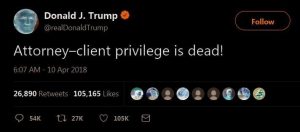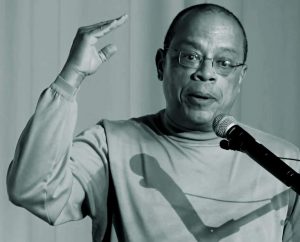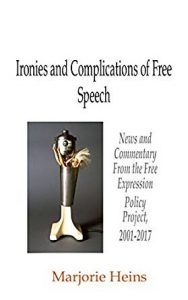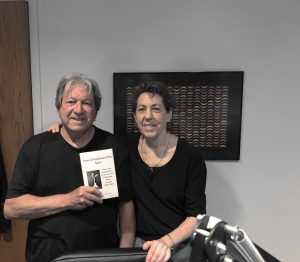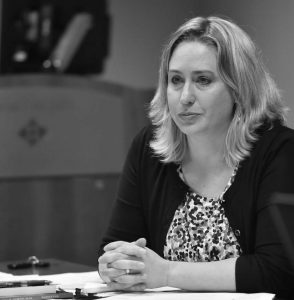Welcome to Law and Disorder Radio
Law and Disorder is a weekly independent civil liberties radio program airing on more than 150 stations and on Apple podcast. Law and Disorder provides timely legal perspectives on issues concerning civil liberties, privacy, right to dissent and practices of torture exercised by the US government and private corporations.
Law and Disorder June 11, 2018
Podcast: Play in new window | Download
U.S. Information Technology And Cyber Security Awareness
America’s information technology infrastructure is especially inviting to adversarial attacks, as news headlines tell us again and again. Some say that our national cyber defense is inadequate to protect against cyber incidents, defined by the Department of Homeland Security as those “likely to result in demonstrable harm to the national security interests, foreign relations, or economy of the United States or to the public confidence, civil liberties, or public health and safety of the American people.”
We read how hackers gain access to our personal information stored by huge retailers such as Target and Home Depot, gaining access to millions of credit and debit card numbers. In 2014 JP Morgan Chase announced a breach affecting 76 million households and 7 million small businesses. The Government Accountability Organization reports a nearly 800 percent increase of threats to federal agencies from 2006 to 2012 at a cost likely to exceed $400 billion.
Despite this and evidence of Russian tampering with the 2016 elections, President Trump recently announced that he was getting rid of its top cyber policy adviser role, a position designed to help streamline the government’s overall approach to cybersecurity policy across federal agencies. Compounding problems of coordination is a lack of shortage of trained cybersecurity professionals to fill the growing number of jobs.
Guest – Professor Nasir Memon, founder and chair of New York University Tandon’s School of Engineering’s cybersecurity program. The Engineering School was one of the first to implement a cybersecurity program at the undergraduate level. In 2002, Nasir founded Cyber Security Awareness Week, an annual conference where tens of thousands of students compete in events and learn skills in cyber security. He is also co-founder of Digital Assembly, a software company that develops digital forensics and data recovery and Vivic, a company that produces malware detection software. Nasir’s research and commentary is widely published in scholarly and mainstream press, and he is a frequent radio and television guest.
—-
Attorney Client Privilege
The attorney-client privilege has been in the news with the unfolding Trump scandals in bringing about the FBI raid on Trump’s attorney Michael Cohen’s home, office, and hotel room where a number of documents and computer files were seized.
What is the attorney-client privilege? And to whom does it apply? Generally speaking, the privilege is owned by the client and unless the client waived her rights her lawyer is barred not only from revealing any information about the client but even revealing who the client is.
An exception in the case of the FBI raid and Donald Trump‘s attorney’s Office, Home, and hotel room was made on the grounds that there is a “fraud exception“ to the attorney-client privilege. Defenders of the attorney-client privilege, even if it has to do with protecting Donald Trump, have argued that it is illegal and unprincipled for the Justice Department to get a search warrant from a federal magistrate and violate the principle. These people argue that it is wrong to argue that “any stick will do to beat a dog” and that making an exception in the case of Trump could backfire.
Guest – Minneapolis Attorney Carla Kjellberg, has worked with victims of child sexual assault who have sued priests, litigated sensitive family law matters, and worked with unions and political activists.
————
————
Law and Disorder June 4, 2018
Podcast: Play in new window | Download
Who We Are: A Chronicle of Racism In America
In recent years, our guest, Attorney Jeffery Robinson has traveled the country speaking about the hidden history of race in America. It is a history he maintains that has been stolen from all of us. He will be speaking on this stolen history on June 19 at Townhall in New York City. His talk will be the basis for a feature documentary on the history of racism in America.
Guest – Attorney Jeffery Robinson, since graduating from Harvard Law School, Jeff has three decades of experience working on criminal and racial justice and reform issues. First, as a public defender representing indigent clients in state and then federal court in Seattle. Then, in private practice in Seattle at Schroeter, Goldmark & Bender where he represented a broad range of clients on charges ranging from shoplifting to securities fraud and first degree murder. He has tried over 200 criminal cases to verdict and more than a dozen civil cases representing plaintiffs suing corporate and government entities. Jeff was one of the original members of the John Adams Project, enabling him to work on behalf of one of five men held at Guantanamo Bay charged with the 9-11 attacks. Jeff is also a respected teacher of trial advocacy. He has lectured on trial skills all over the United States. Since 2012, Jeff has done work to educate himself and others about little known facts of the history of America’s practice of white supremacy related to African Americans. He speaks to diverse audiences across the country on the role of race in the criminal justice system and beyond. In 2015, Jeff joined the ACLU National office in New York where he continues this important work.
—-
The Free Expression Policy Project was a little think tank that delved into the problem of censorship in our society. Until 2017 it was headed up by civil liberties lawyer and author Marjorie Heins. The First Amendment ostensibly protects free speech and free expression. But there are exceptions. It also separates church from state, but here too there are exceptions. We speak with attorney Marjorie Heins about this. Her book Ironies and Complications of Free Speech: News and Commentary From the Free Expression Policy Project, 2001-2017 has just been published.
Guest – Attorney Marjorie Heins, is a civil liberties lawyer, writer, and teacher, and the founding director of the Free Expression Policy Project. Her previous book, Not in Front of the Children, won the American Library Association’s 2002 Eli Oboler Award for best published work in the field of intellectual freedom. Other books include Sex, Sin, and Blasphemy: A Guide to America’s Censorship Wars; Cutting the Mustard: Affirmative Action and the Nature of Excellence; and Strictly Ghetto Property: The Story of Los Siete de la Raza. She is a graduate of Harvard Law School.
——————
——————
Law and Disorder May 28, 2018
Podcast: Play in new window | Download
Lawyers You’ll Like: Attorney Nancy Stearns
In 1970, an unusual legal team came together in what would become a landmark case challenging New York’s restrictive abortion ban. The case was Abramowicz v. Lefkowitz, and the team consisted of all women, many of whom had just a few years of legal practice. The premise was equally unusual at the time: its critical testimony came directly from women who had had illegal abortions, lack of contraceptive access, and painful experiences either from adoption or forced motherhood.
One of those attorneys included Nancy Stearns. After the Abramowicz case influenced the state’s passage of the nation’s most liberal abortion law before Roe v. Wade, Nancy would go on to bring successful challenges to abortion laws in NJ, CT, RI and MA.
Nancy attended law school after working with the Student Nonviolent Coordinating Committee (SNCC) in Atlanta. For 12 years at the Center for Constitutional Rights she worked on a number of significant civil rights cases, including challenging New York City’s mandatory pregnancy leave policy in Monell v. Department of Social Services that resulted in a Supreme Court ruling that municipalities are liable for damages under 42 U.S.C. 1983. She represented members of Vietnam Veterans Against the War in a federal criminal conspiracy prosecution arising from anti-war protests, and she litigated to reunite families separated by the Babylift, in which Vietnamese infants and young children were brought to the U.S. for adoption at the close of the Vietnam War, despite having living parents.
Nancy is also an accomplished cabaret singer, making the circuit in New York City. She is a longtime member of the National Lawyers Guild; in fact the Guild’s Chapter is honoring Nancy and her exemplary career at its annual Spring Fling on June 8, 2018.
—-
Cryptocurrencies
In 2008, Satoshi Nakamoto invented Bitcoin, the first and most prominent cryptocurrency, a peer-to-peer electronic cash system. While cryptocurrencies have become an international phenomenon, and many are aware of their importance, yet they are still not completely understood by large financial institutions, governments and much of the public. There are currently more than 1,500 cryptocurrencies, and the list continues to grow.
The general definition of cryptocurrencies are digital currencies using encryption techniques, hence the prefix crypto, to regulate the generation of unites of currency and verify the transfer of funds. This system operates independently of a central bank to create and outlet for personal wealth beyond restriction and confiscation. The U.S. Securities and Exchange Commission recently announced that it will be requiring digital asset exchanges to registers with the agency.
Guest – Professor Angela Walch teaches at St. Mary’s University School of Law. Her research focuses on money and the law, blockchain technologies, governance of emerging technologies and financial stability. She is a Research Fellow of the Centre for Blockchain Technologies of University College London. Walch was nominated for “Blockchain Person of the Year” for 2016 by Crypto Coins News for her work on the governance of blockchain technologies and her influential article in American Banker arguing that the coders and miners of public blockchains should be treated as fiduciaries.
——————
——————



